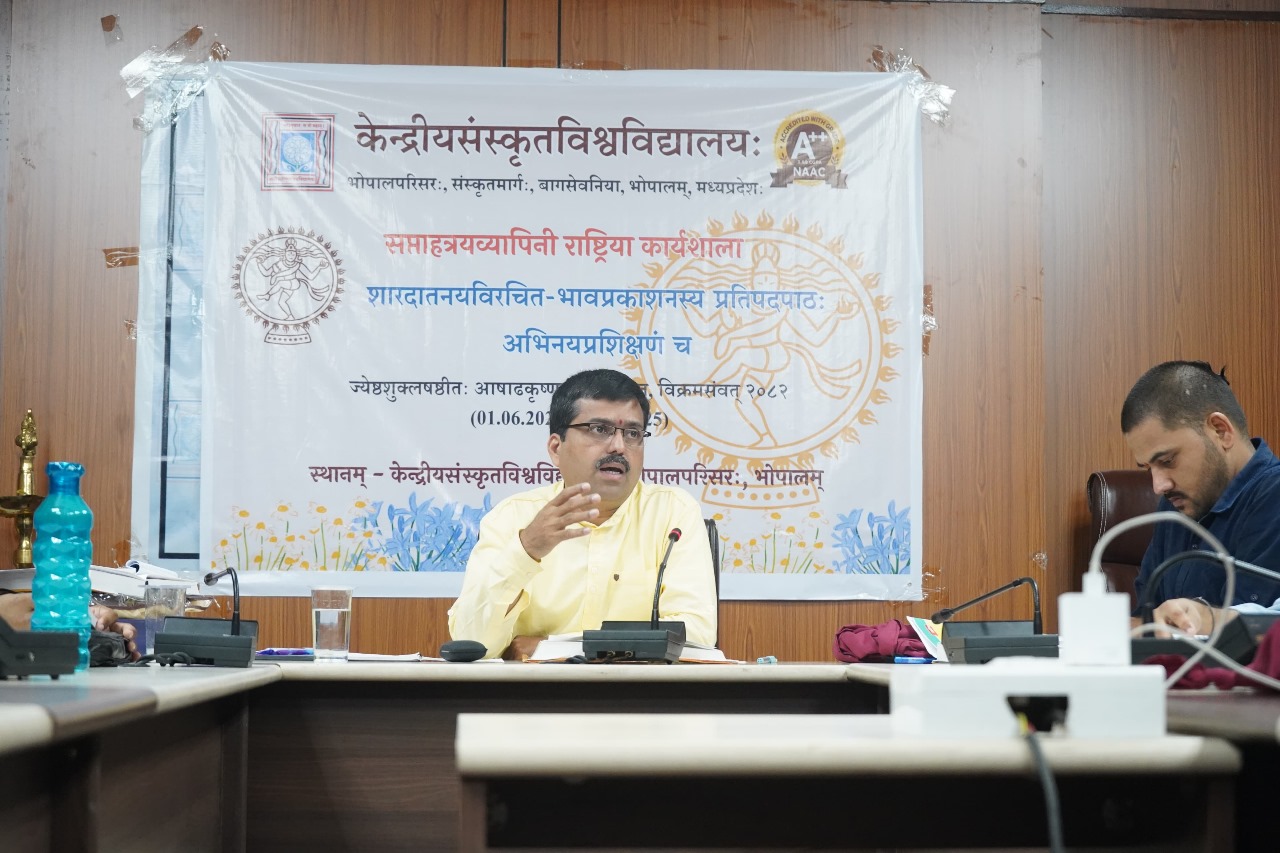CNN Central News & Network–ITDC India Epress/ITDC News Bhopal: On the 12th day of the National Theatre Workshop organized by the Central Sanskrit University, Bhopal campus, subject expert Prof. Raghavendra Bhatt from Karnataka, during the first session, elaborated on the philosophical analysis of Rasa as discussed in Bhavaprakasha. He explained that the generation of Rasa (aesthetic flavor) in drama occurs through the performance of the actor, enabling the audience to experience the essence of the play. Rasa is the soul of drama.
Just as the presence of life force (prana) sustains life in a body, in the same way, Rasa is the life of a play’s storyline. Through the experience of Rasa, an empathetic audience attains aesthetic bliss and the ultimate joy that drama seeks to deliver. Experiencing Rasananda (aesthetic pleasure) is considered the primary purpose of drama. Sanskrit drama leads society toward the joyful experience of Rasa.
The plays of great playwrights like Bhasa, Kalidasa, Bhavabhuti, and Shudraka are representative theatrical works in society and illuminate the global stage. The more Sanskrit dramas are performed, the more society will recognize their richness in Rasa. Sharadatanaya, through Bhavaprakasha, has presented the form and aesthetics of Sanskrit theatre to society. He has offered a detailed explanation of acting techniques and their subtleties, which theatre practitioners should study and apply in performance.
#SanskritDrama #ProfRaghavendraBhatt #GlobalTheatre #IndianClassicalArts #SanskritTheatre #CulturalHeritage #TraditionalDrama #PerformingArts







